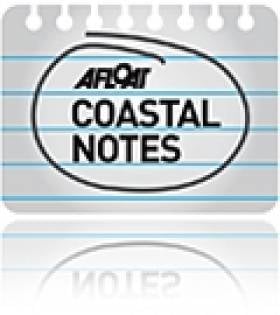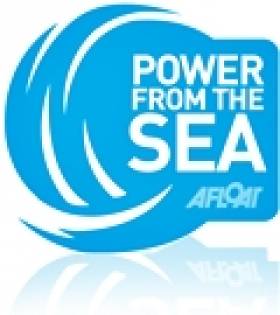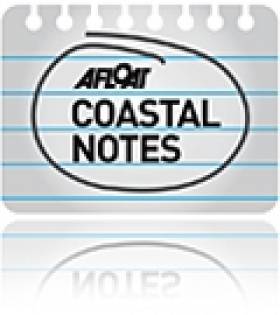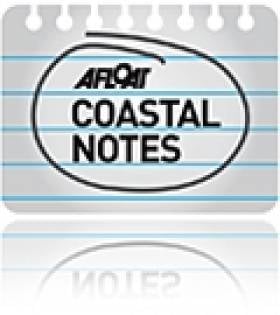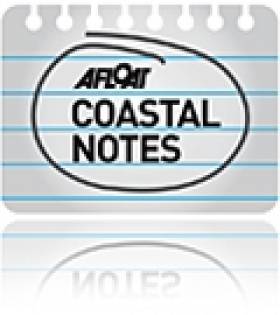Displaying items by tag: Minister for Energy
Ireland Does Not Need Own Oil Refinery
#WhitegateOil – According to a Government-commissioned report published this week, the state does not need to have it own oil refinery as it can import enough of the fuel to meet all its needs.
The news comes as US-based Phillips 66, owner of the country's sole refinery at Whitegate in Cork Harbour, gears up to sell the plant along with a number of its other European operations.
The multinational's decision has thrown a question mark over Whitegate's long-term future, although as it stands anyone who owns the refinery has to keep it operating until at least 2016. The Irish Times has more on this story.
To download a PDF copy of the report Study of the Strategic Case for Oil Refining Requirements on the Island of Ireland, which is available from the Department of Energy, click this LINK.
New Marine Energy Lab for Cork Harbour
#POWER FROM THE SEA - A new marine research lab in Cork Harbour could help Ireland to be a global leader in renewable energy, the Irish Examiner reports.
The Beaufort Laboratory, being built on a three-acre site next to the National Maritime College of Ireland on Haulbowline Island, is set to be completed by 2016.
And scientists at the €14 million lab have told Minister for Energy Pat Rabbitte that it will be the largest marine renewable energy research facility in the world.
Expected to be a base for 135 researchers from University College Cork (UCC), the lab also hopes to attract the world's top researchers in marine energy to the area, with an aim to exploiting the potential for jobs in the fast-growing ocean energy sector.
The new lab forms part of the Irish Maritime and Energy Resource Cluster (IMERC) established to promote the country as a world-renowned research and development location, as previously reported on Afloat.ie.
The Irish Examiner has more on the story HERE.
Minister Grants Foreshore License for Corrib Pipeline
New Minister for the Environment Phil Hogan has signed off on a key foreshore licence to Shell Ireland, paving the way for the completion of the controversial Corrib gas project.
The Irish Times reports that the licence, subject to conditions, consents for the construction of the final 8km section of pipeline linking the Corrib gas field to Shell's onshore terminal at Ballinaboy. Co Mayo.
The scheme already has approval from An Bord Pleanála, and consents approved by former acting energy minister Pat Carey. But An Taisce has sought a judicial review of the planning decision, due before the High Court on Tuesday.
Still required by the developer before any work can begin are a revised emissions licence from the Environmental Protection Agency and a safety permit from the Commission for Energy Regulation under the Petroleum (Exploration and Extraction) Safety Act 2010.
The Irish Times has more on the story HERE.
- Natural Gas
- pipeline
- Corrib
- Corrib Gas field
- Corrib gas pipeline
- Shell Ireland
- Co Mayo
- Ballinaboy
- Minister for the Environment
- Phil Hogan
- Minister for Energy
- Pat Carey
- An Taisce
- An Bord Pleanála
- High Court
- judicial review
- Environmental Protection Agency
- Commission for Energy Regulation
- Petroleum (Exploration and Extraction) Safety Act 2010
Carey Courts Criticism Over Corrib Pipeline Approval
Controversy has arisen over the decision by outgoing Minister for Energy Pat Carey to grant key consents for the Corrib gas pipeline on the day of the general election.
According to the Irish Times, the Department of Energy said consent to construct the pipeline was issued "as a matter of course" after An Bord Pleanála approved the new pipeline route in January.
But Green Party sources told the paper that a recommendation on the consent application by Shell Ireland had not arrived on the desk of former Energy Minister Eamon Ryan before he left office that month.
Meanwhile, An Taisce is seeking a judicial review of the planning decision, which is believed to breach a number of EU directives.
As previously reported on Afloat.ie, planning for the last 8km stage of the Corrib pipeline - which runs through a special area of conversation - was only approved with 58 conditions related its construction and management.
Labour Party president Michael D Higgins told The Irish Times: “This is not a decision that one would regard as 'clearing one’s desk' as minister, as it has very serious implications."
The Irish Times has more on the story HERE.
Corrib Pipeline Go-Ahead Rests With Energy Minister
Energy Minister Eamon Ryan will issue a decision "in the coming weeks" on Shell Ireland's plans to complete the Corrib gas pipeline, The Irish Times reports.
The news follows yesterday's ruling by An Bord Pleanála which approved revised plans final section of the controversial pipeline.
Shell also requires licencing from Minsiter for the Environment John Gormley and the Environmental Protection Agency (EPA) for the completion of the pipeline under the conservation area of Sruwaddacon esturary to Shell's Ballinaboy gas terminal.
It would be a further two years before the pipeline is fully operational.
An Bord Pleanála's Inspector Martin Nolan commented that the "clarity and transparency" of Shell's revised application gave "confidence that the safety of the public is fully protected".
However planning was only approved with 58 conditions related to the construction and management of the 8.3km pipeline - including extra security at the landfall valve at Glengad, which has raised the ire of local residents at last year's oral hearings.
The Irish Times has more on the story HERE.


























